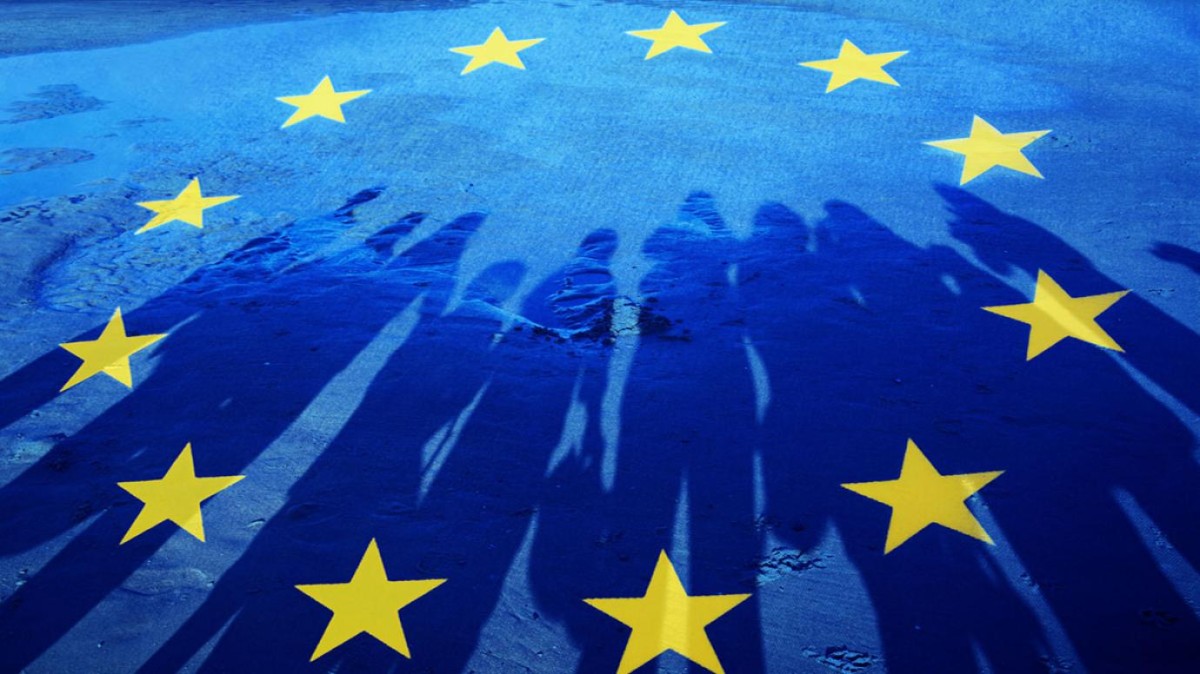The draft joint declaration represents an unprecedented commitment by the European Commission to advocate to the European Parliament and the Council of the European Union to place culture at the heart of EU policymaking. The document establishes 12+1 principles for cultural policy across the EU, positioning culture as both a fundamental right and a strategic resource to confront contemporary challenges, including geopolitical tensions, climate change and technological disruption. The declaration operates within the EU's supporting competencies under the treaties and is based on the key directions set out in the Commission’s 2025 Culture Compass for Europe. It carries political weight through the intended joint endorsement of all three institutions. It recognises culture's intrinsic, societal, civic, and economic value, framing it as a public good essential to European unity, democracy, excellence, and competitiveness.
Safeguarding Artistic Freedom and Cultural Diversity
The first three principles establish culture as foundational to a democratic society. The institutions commit to safeguarding freedom of artistic expression as a cornerstone of democracy, protecting artists and cultural professionals from censorship, intimidation and undue interference, whilst shielding the independence of cultural institutions. They pledge to support and preserve the EU's rich cultural and linguistic diversity, promoting the visibility and discoverability of diverse European content, particularly online, and harnessing new technologies for this purpose.
 Access to culture is enshrined as a fundamental pillar of democratic and inclusive societies. The declaration commits to enhancing inclusive access and participation for everyone, with particular attention to persons with disabilities, marginalised groups, and people living in rural, remote or underserved areas facing depopulation or socio-economic challenges. This includes improving cultural infrastructure across Europe to address territorial disparities. Recognising that artists and cultural professionals are at the heart of creative sectors, the declaration commits to promoting fair remuneration, adequate social protection, and access to skills development. It supports their collective bargaining rights and pledges to foster occupational health and safety, including mental health support. The institutions explicitly commit to promoting gender equality in culture and protecting the rights of artists with disabilities.
Access to culture is enshrined as a fundamental pillar of democratic and inclusive societies. The declaration commits to enhancing inclusive access and participation for everyone, with particular attention to persons with disabilities, marginalised groups, and people living in rural, remote or underserved areas facing depopulation or socio-economic challenges. This includes improving cultural infrastructure across Europe to address territorial disparities. Recognising that artists and cultural professionals are at the heart of creative sectors, the declaration commits to promoting fair remuneration, adequate social protection, and access to skills development. It supports their collective bargaining rights and pledges to foster occupational health and safety, including mental health support. The institutions explicitly commit to promoting gender equality in culture and protecting the rights of artists with disabilities.
Enhancing Access to Culture for All
The declaration emphasises youth empowerment, recognising young people as crucial to shaping Europe's future cultural landscape. It commits to promoting their representation and participation in cultural governance structures, amplifying their voices in decision-making processes, and supporting young and emerging artists in recognition of their contribution to Europe's culture and heritage.
 The synergy between culture, arts, and education is recognised as fundamental to future prosperity. The institutions commit to fostering arts education for everyone in formal, non-formal and informal settings, including lifelong learning. They explicitly support the STEAM approach—adding Arts to Science, Technology, Engineering, and Mathematics—and promote interdisciplinary synergies between culture, arts, science, and technology. Acknowledging cultural engagement's proven positive impacts, the declaration commits to promoting the effects of culture and cultural participation on health and wellbeing through policies, whilst sharing best practices and innovative approaches across sectors. Perhaps most significantly for the digital age, the declaration addresses artificial intelligence comprehensively.
The synergy between culture, arts, and education is recognised as fundamental to future prosperity. The institutions commit to fostering arts education for everyone in formal, non-formal and informal settings, including lifelong learning. They explicitly support the STEAM approach—adding Arts to Science, Technology, Engineering, and Mathematics—and promote interdisciplinary synergies between culture, arts, science, and technology. Acknowledging cultural engagement's proven positive impacts, the declaration commits to promoting the effects of culture and cultural participation on health and wellbeing through policies, whilst sharing best practices and innovative approaches across sectors. Perhaps most significantly for the digital age, the declaration addresses artificial intelligence comprehensively.
Ensuring Human-Centric Development and Cultural Rights”
It commits to ensuring AI development fosters human creativity through a fair, human-centric and rights-based approach that respects cultural rights, accessibility, inclusivity and cultural diversity. The institutions pledge to protect intellectual property rights whilst embracing innovation, monitor AI's impact on jobs, support sectors to adapt to technological change, and foster AI as a tool to support creative professionals. Critically, it addresses the ethical risks of biases and cultural homogenization whilst promoting European digital cultural sovereignty.
 Cultural heritage is declared a symbol of unity in diversity and a cornerstone of identity, democracy, and resilience. The institutions commit to protecting, safeguarding, and promoting Europe's tangible and intangible heritage whilst harnessing digital technologies for preservation, access, and innovation. This includes improving the capacity to combat cultural goods trafficking and fostering intergenerational knowledge transmission. The declaration recognises culture's role in regional and territorial development, committing to leverage its potential in boosting the attractiveness of all territories and addressing territorial challenges, particularly in peripheral, rural, remote, and underserved areas.
Cultural heritage is declared a symbol of unity in diversity and a cornerstone of identity, democracy, and resilience. The institutions commit to protecting, safeguarding, and promoting Europe's tangible and intangible heritage whilst harnessing digital technologies for preservation, access, and innovation. This includes improving the capacity to combat cultural goods trafficking and fostering intergenerational knowledge transmission. The declaration recognises culture's role in regional and territorial development, committing to leverage its potential in boosting the attractiveness of all territories and addressing territorial challenges, particularly in peripheral, rural, remote, and underserved areas.
Building Resilience for the Future
It pledges to advance sustainable cultural tourism respectful of heritage, landscapes, and community practices. Significantly, it commits to enhancing cooperation on crisis preparedness and integrating culture into security and crisis management, post-crisis reconstruction, recovery and peace-building processes.
 The environmental dimension is explicitly addressed, with the institutions committing to emphasise culture's importance in policy responses to ecological challenges. This includes promoting architecture, design, heritage safeguarding and landscape management that pursues quality, innovation, inclusion and excellence, whilst encouraging practical greening tools and enabling cultural agents to lead environmental narratives in co-creation with communities. The final principle addresses implementation, committing to continuous, dedicated funding for cultural and creative sectors and industries, and promoting innovative and alternative funding modes at all levels of governance. The institutions pledge to embed culture within relevant strategies, policies, actions and corresponding funding tools, whilst maintaining close dialogue with stakeholders.
The environmental dimension is explicitly addressed, with the institutions committing to emphasise culture's importance in policy responses to ecological challenges. This includes promoting architecture, design, heritage safeguarding and landscape management that pursues quality, innovation, inclusion and excellence, whilst encouraging practical greening tools and enabling cultural agents to lead environmental narratives in co-creation with communities. The final principle addresses implementation, committing to continuous, dedicated funding for cultural and creative sectors and industries, and promoting innovative and alternative funding modes at all levels of governance. The institutions pledge to embed culture within relevant strategies, policies, actions and corresponding funding tools, whilst maintaining close dialogue with stakeholders.
Cultural Principles in International Relations
Significantly, the declaration extends beyond EU borders, committing to promote these principles in the EU's relations with international organisations and partner countries—within the respective roles and powers of the signatories—and anchoring partnerships to values of reciprocity and long-term engagement. The institutions commit to advancing initiatives improving the availability of sound and comparable data on culture to support evidence-based policies, and to reviewing progress in all areas covered by the declaration.
This international dimension signals Europe's intention to establish cultural principles “anchoring our partnerships to the values of reciprocity and long-term engagement”. It also positions the EU as a global cultural powerhouse in an era where culture has increasingly become a strategic domain of influence.
You can download the Draft of the Joint Declaration here









 Access to culture is enshrined as a fundamental pillar of democratic and inclusive societies. The declaration commits to enhancing inclusive access and participation for everyone, with particular attention to persons with disabilities, marginalised groups, and people living in rural, remote or underserved areas facing depopulation or socio-economic challenges. This includes improving cultural infrastructure across Europe to address territorial disparities. Recognising that artists and cultural professionals are at the heart of creative sectors, the declaration commits to promoting fair remuneration, adequate social protection, and access to skills development. It supports their collective bargaining rights and pledges to foster occupational health and safety, including mental health support. The institutions explicitly commit to promoting gender equality in culture and protecting the rights of artists with disabilities.
Access to culture is enshrined as a fundamental pillar of democratic and inclusive societies. The declaration commits to enhancing inclusive access and participation for everyone, with particular attention to persons with disabilities, marginalised groups, and people living in rural, remote or underserved areas facing depopulation or socio-economic challenges. This includes improving cultural infrastructure across Europe to address territorial disparities. Recognising that artists and cultural professionals are at the heart of creative sectors, the declaration commits to promoting fair remuneration, adequate social protection, and access to skills development. It supports their collective bargaining rights and pledges to foster occupational health and safety, including mental health support. The institutions explicitly commit to promoting gender equality in culture and protecting the rights of artists with disabilities. The synergy between culture, arts, and education is recognised as fundamental to future prosperity. The institutions commit to fostering arts education for everyone in formal, non-formal and informal settings, including lifelong learning. They explicitly support the STEAM approach—adding Arts to Science, Technology, Engineering, and Mathematics—and promote interdisciplinary synergies between culture, arts, science, and technology. Acknowledging cultural engagement's proven positive impacts, the declaration commits to promoting the effects of culture and cultural participation on health and wellbeing through policies, whilst sharing best practices and innovative approaches across sectors. Perhaps most significantly for the digital age, the declaration addresses artificial intelligence comprehensively.
The synergy between culture, arts, and education is recognised as fundamental to future prosperity. The institutions commit to fostering arts education for everyone in formal, non-formal and informal settings, including lifelong learning. They explicitly support the STEAM approach—adding Arts to Science, Technology, Engineering, and Mathematics—and promote interdisciplinary synergies between culture, arts, science, and technology. Acknowledging cultural engagement's proven positive impacts, the declaration commits to promoting the effects of culture and cultural participation on health and wellbeing through policies, whilst sharing best practices and innovative approaches across sectors. Perhaps most significantly for the digital age, the declaration addresses artificial intelligence comprehensively.  Cultural heritage is declared a symbol of unity in diversity and a cornerstone of identity, democracy, and resilience. The institutions commit to protecting, safeguarding, and promoting Europe's tangible and intangible heritage whilst harnessing digital technologies for preservation, access, and innovation. This includes improving the capacity to combat cultural goods trafficking and fostering intergenerational knowledge transmission. The declaration recognises culture's role in regional and territorial development, committing to leverage its potential in boosting the attractiveness of all territories and addressing territorial challenges, particularly in peripheral, rural, remote, and underserved areas.
Cultural heritage is declared a symbol of unity in diversity and a cornerstone of identity, democracy, and resilience. The institutions commit to protecting, safeguarding, and promoting Europe's tangible and intangible heritage whilst harnessing digital technologies for preservation, access, and innovation. This includes improving the capacity to combat cultural goods trafficking and fostering intergenerational knowledge transmission. The declaration recognises culture's role in regional and territorial development, committing to leverage its potential in boosting the attractiveness of all territories and addressing territorial challenges, particularly in peripheral, rural, remote, and underserved areas.  The environmental dimension is explicitly addressed, with the institutions committing to emphasise culture's importance in policy responses to ecological challenges. This includes promoting architecture, design, heritage safeguarding and landscape management that pursues quality, innovation, inclusion and excellence, whilst encouraging practical greening tools and enabling cultural agents to lead environmental narratives in co-creation with communities. The final principle addresses implementation, committing to continuous, dedicated funding for cultural and creative sectors and industries, and promoting innovative and alternative funding modes at all levels of governance. The institutions pledge to embed culture within relevant strategies, policies, actions and corresponding funding tools, whilst maintaining close dialogue with stakeholders.
The environmental dimension is explicitly addressed, with the institutions committing to emphasise culture's importance in policy responses to ecological challenges. This includes promoting architecture, design, heritage safeguarding and landscape management that pursues quality, innovation, inclusion and excellence, whilst encouraging practical greening tools and enabling cultural agents to lead environmental narratives in co-creation with communities. The final principle addresses implementation, committing to continuous, dedicated funding for cultural and creative sectors and industries, and promoting innovative and alternative funding modes at all levels of governance. The institutions pledge to embed culture within relevant strategies, policies, actions and corresponding funding tools, whilst maintaining close dialogue with stakeholders.